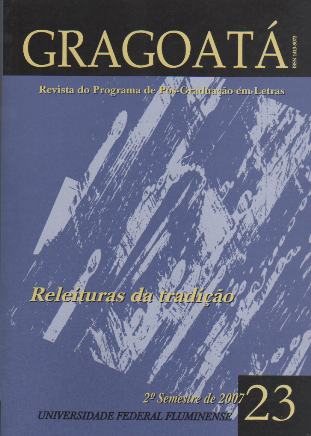Tensive Semiotics and the Nathalie Sarraute’s “nouveau roman”
Keywords:
French semiotics. Tensivity. Rhythm. Enunciation. Contemporary literatureAbstract
Amongst the new developments of the French Semiotics in recent years, the works of Claude Zilberberg and Jacques Fontanille have attempted (also) to acknowledge sensitive contents in the processes of generation of text meaning. This new theoretical field – known as tensive semiotics – explains sensible contents in terms of continuous categories such as tempo, tonicity, intensity etc., paving the way for approaching the text as a process. Although this new conceptual framework does not introduce any drastic change in the classic analytical procedures, it has been showing to be particularly productive for treating contemporary texts whose main feature appears to be the sensitive manipulation of the enunciatée. The work of French writer Nathalie Sarraute seems to follow these very guidelines. In this essay we present an analysis of “Je ne comprends pas” (in L’usage de la parole, 1980), in which the enunciator and the enunciatée are skewed from their “classical” positions and are immersed into a first hand interaction. We intend to show that the strategy behind this text comes as a result of an entanglement of the discourse actant voices (enunciator / enunciatée, narrator / narratée, interlocutor / interlocutée) in a way to force them to share the same content rhythm. Here lies the effect of meaning of a piece of work intended to be “experienced” rather than being simply understood.
Downloads
Downloads
Published
How to Cite
Issue
Section
License
Authors who publish in Gragoatá agree to the following terms:
The authors retain the rights and give the journal the right to the first publication, simultaneously subject to a Creative Commons license CC-BY-NC 4.0, which allows sharing by third parties with due mention to the author and the first publication by Gragoatá.
Authors may enter into additional and separate contractual arrangements for the non-exclusive distribution of the published version of the work (for example, posting it in an institutional repository or publishing it in a book), with recognition of its initial publication in Gragoatá.

Gragoatá is licensed under a Creative Commons - Attribution-NonCommercial 4.0 International.











